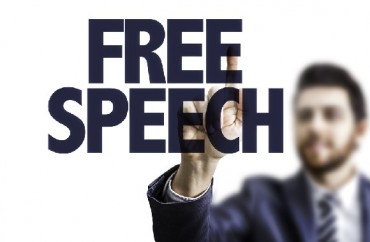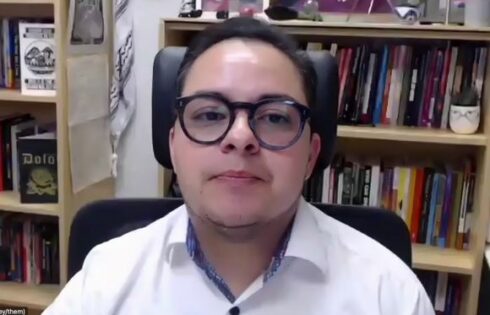
Schools have made progress on this issue without pressure from Washington
President Trump’s declaration that he will soon sign “an executive order requiring colleges and universities to support free speech” has generated a predictable amount of pushback from the usual quarters: Many campus officials and higher education administrators are not pleased with the idea of their speech codes being policed and regulated from Washington. In this one rare instance, they may very well be right. Trump’s proposal is probably not a very good idea.
To be fair, as College Fix editor Jenn Kabbany pointed out this week, Trump’s proposal “addresses a real and pressing issue facing higher education today.” Too many colleges and universities, both public and private, are absolutely hostile to free speech. Too many students have found themselves in hot water simply for speaking their minds on campus. Anyone who denies that this is a serious and persistent problem is lying.
And yet there has nevertheless been some notable progress on this front in recent years. According to the Foundation for Individual Rights in Education, this year the number of schools earning the watchdog group’s “Red Light” speech code rating “has gone down for the eleventh year in a row.” The number of schools with draconian speech policies has declined by more than 45 percent since 2009. Several dozen schools have adopted the “Chicago Statement” that affirms, and underscores the importance of, campus free speech. Several states such as Virginia and Florida have passed measures expanding or protecting campus free speech.
There is still plenty of work to do, of course; far too many schools are still too restrictive of their students’ speech rights. Nevertheless, the winds appear to be shifting, slowly but surely. It is encouraging, all the more so because in many cases it has been largely voluntary.
An executive order might help to push along the numerous universities that are still inimical to free speech. And yet it could easily create more problems than it might solve. University of Chicago President Robert Zimmer correctly notes that the order may very well result in “a committee in Washington passing judgment on the speech policies and activities of educational institutions, judgments that may change according to who is in power and what policies they wish to promulgate.” Forcing schools to adopt favorable speech policies may sound good on its face. But it also sets a bad precedent, in which successive administrators can use the threat of funding denial to influence myriad campus policies. Not so good.
There is, of course, a sensible conservative case to be made that the federal government should not really be involved in funding higher education to begin with. But so long as federal dollars are going into American colleges and universities, they probably shouldn’t be used as political cudgels. Let’s hope, in either case, that the slow but steady march of campus free speech rights continues apace. That is something to celebrate, with or without an executive order.
MORE: Yes, there is a free speech problem on campus
IMAGE: Gustavo Frazao / Shutterstock.com
Like The College Fix on Facebook / Follow us on Twitter





Please join the conversation about our stories on Facebook, Twitter, Instagram, Reddit, MeWe, Rumble, Gab, Minds and Gettr.